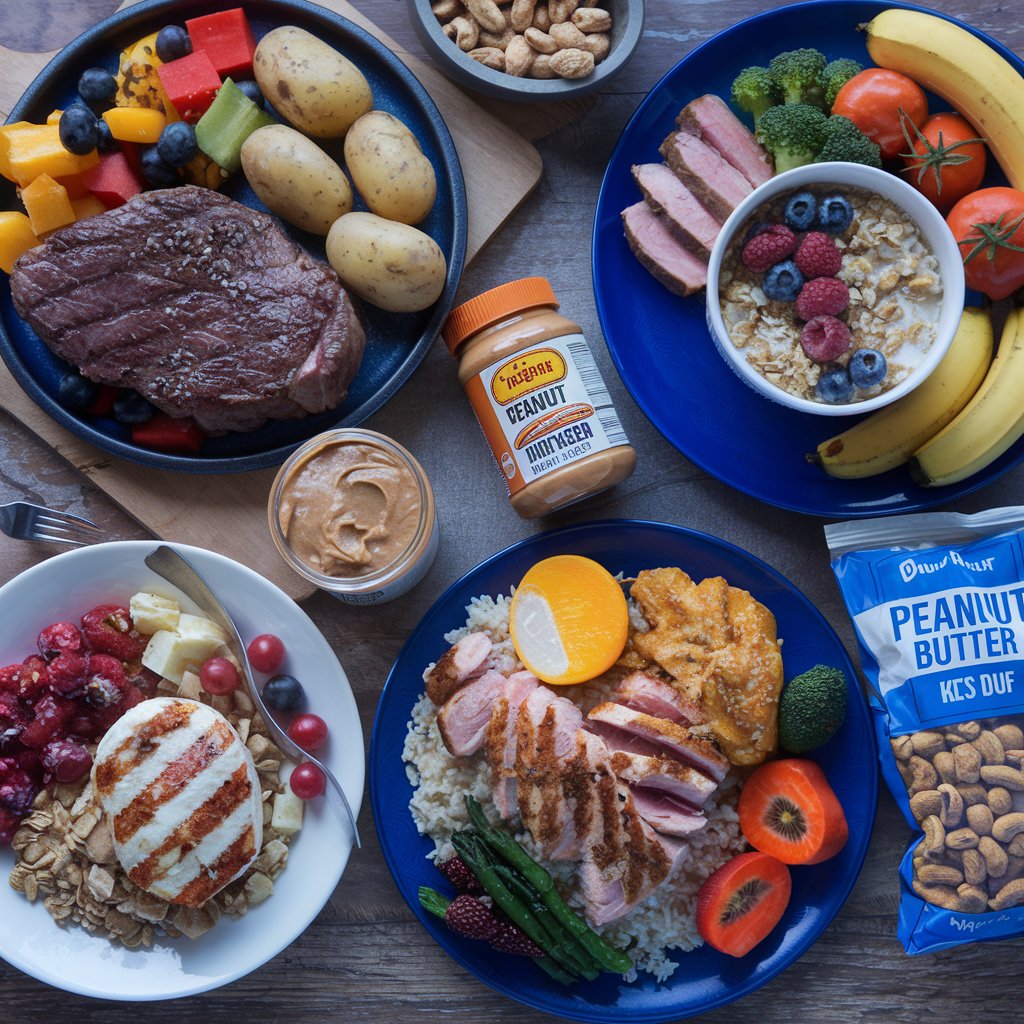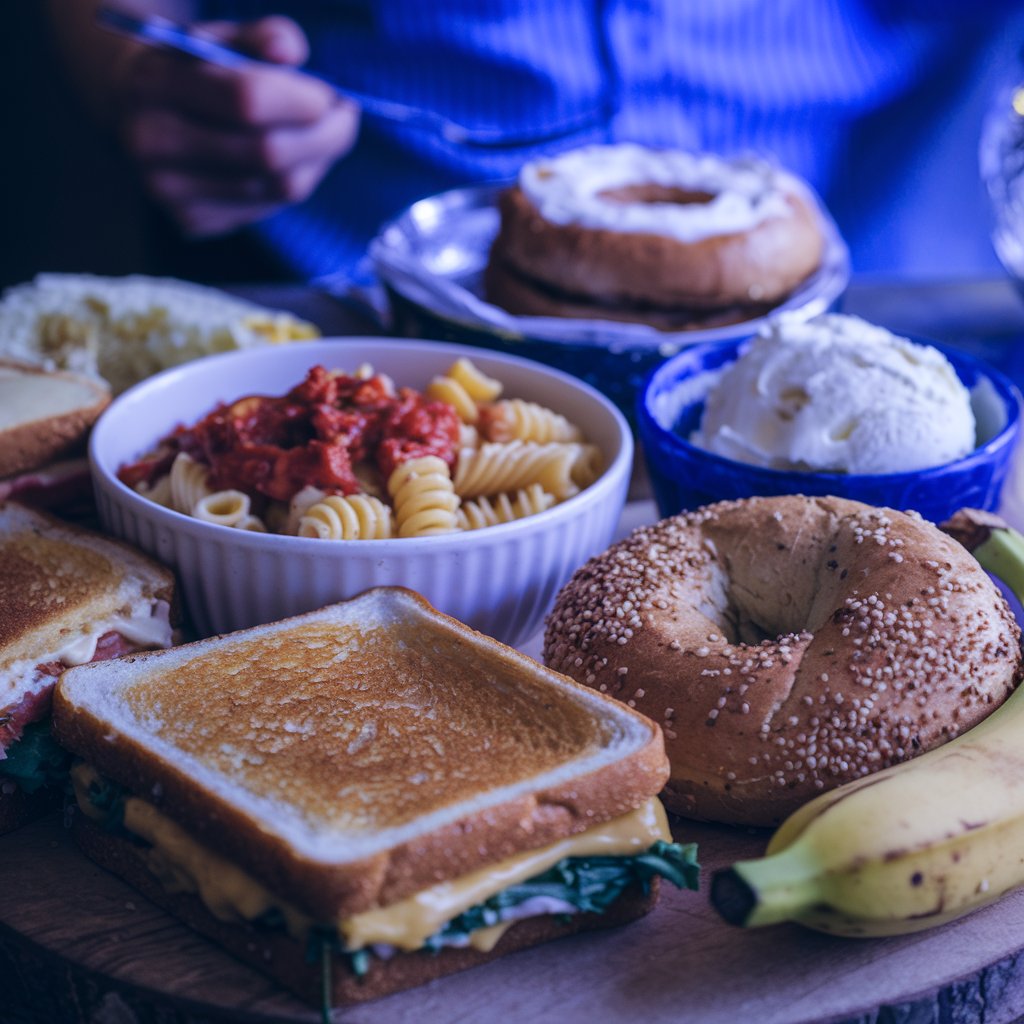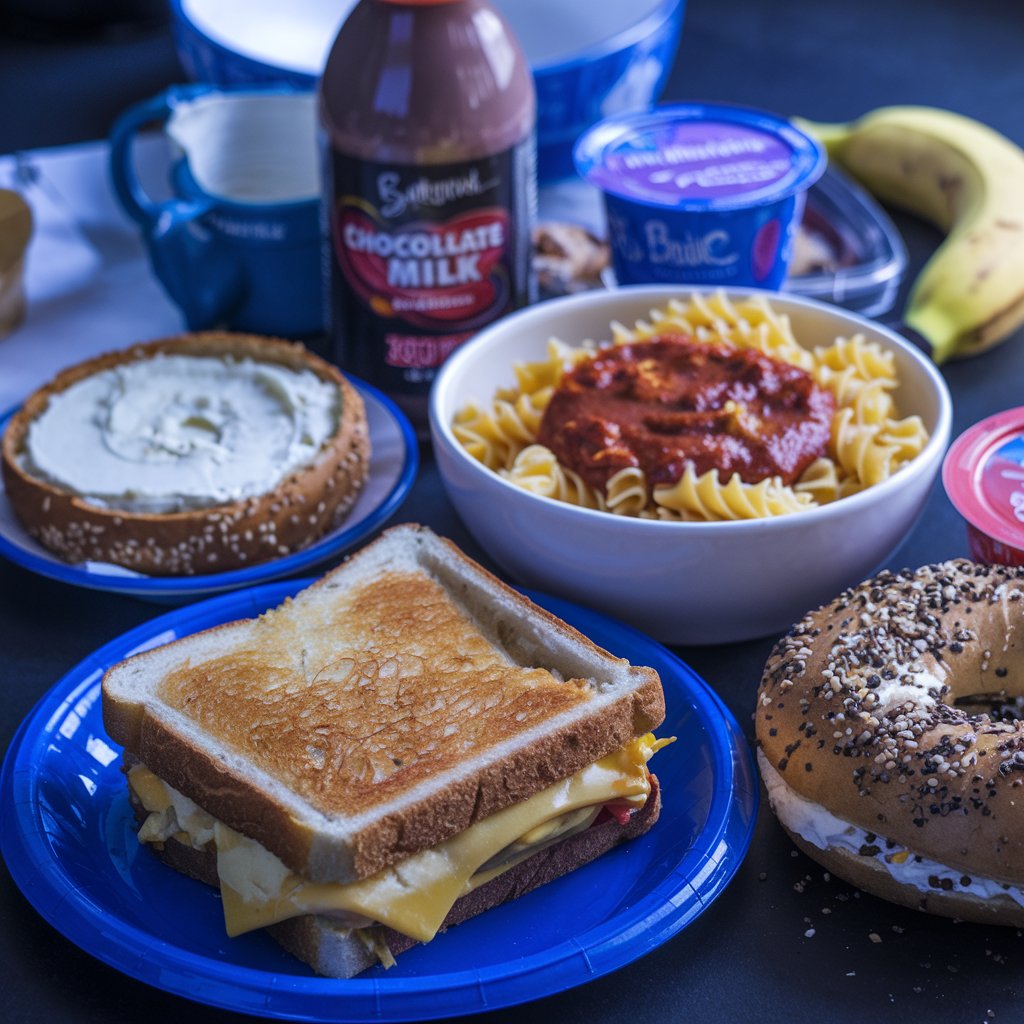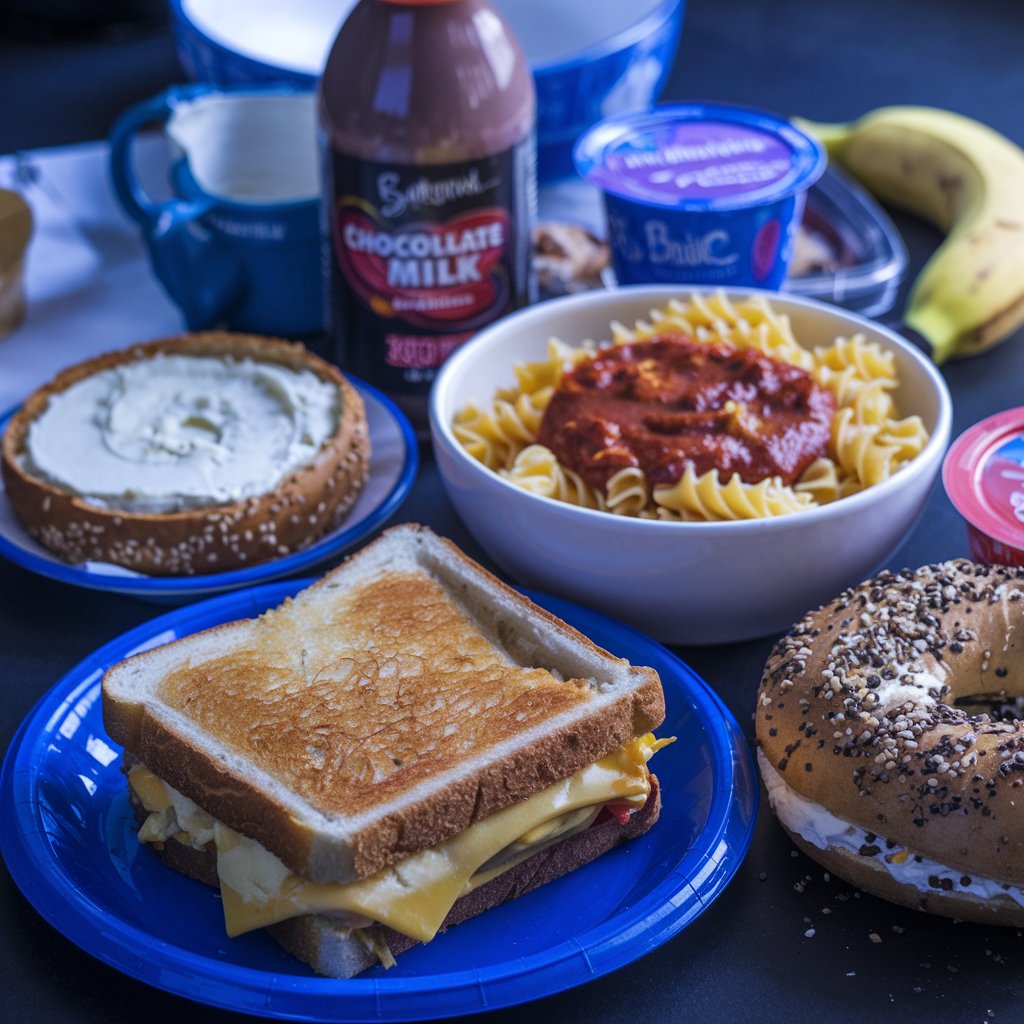The Ultimate Weight Gain Meal Plan: Build Muscle and Boost Energy Naturally

Outline
- Introduction
- Importance of a structured weight gain meal plan
- Benefits of healthy weight gain
- Understanding Weight Gain
- The science behind weight gain: caloric surplus
- Role of metabolism and activity level
- Why a Meal Plan is Key for Weight Gain
- Avoiding unhealthy food choices
- Maintaining consistency in calorie intake
- Macronutrient Breakdown for Weight Gain
- Protein: Building muscle mass
- Carbohydrates: Energy source
- Fats: Calorie-dense fuel
- Micronutrients: The Hidden Players
- Importance of vitamins and minerals
- Foods rich in micronutrients
- High-Calorie Foods for Weight Gain
- Nutrient-dense foods for muscle growth
- Snacks that pack a calorie punch
- Foods to Avoid When Gaining Weight
- Processed and empty-calorie foods
- Sugary beverages and trans fats
- **Sample Weight Gain Meal Plan
Introduction
Are you struggling to put on healthy weight despite eating more? Whether you’re trying to build muscle, recover from an illness, or enhance athletic performance, gaining weight requires a strategic approach. A carefully planned weight gain meal plan ensures that you consume enough calories and nutrients to achieve your goals without resorting to junk food. This article provides a comprehensive guide to creating a weight gain meal plan that’s effective, nutritious, and sustainable.
Understanding Weight Gain
The Science Behind Weight Gain: Caloric Surplus
Weight gain occurs when you consume more calories than your body burns. This is called a caloric surplus. To gain one pound, you need to consume an additional 3,500 calories over your maintenance level. For gradual, healthy weight gain, aim to increase your calorie intake by 300-500 calories per day.
Role of Metabolism and Activity Level
Your Basal Metabolic Rate (BMR) is the number of calories your body needs at rest. Add your activity level to this, and you’ll get your Total Daily Energy Expenditure (TDEE). A meal plan tailored to your TDEE ensures you’re eating enough to support weight gain without adding unnecessary fat.
Why a Meal Plan is Key for Weight Gain
Avoiding Unhealthy Food Choices
Relying on high-calorie junk food can lead to weight gain, but it often comes with long-term health consequences. A meal plan focused on whole, nutrient-dense foods ensures your body gets the fuel it needs without unnecessary additives.
Maintaining Consistency in Calorie Intake
Consistency is crucial. A meal plan helps you track your daily calorie and macronutrient intake, preventing unintentional calorie deficits on busy days.
Macronutrient Breakdown for Weight Gain

Protein: Building Muscle Mass
Protein is essential for muscle repair and growth. Aim to include at least 1.2–2.0 grams of protein per kilogram of body weight. Great sources include chicken, fish, eggs, lentils, and tofu.
Carbohydrates: Energy Source
Carbs are your body’s primary energy source. Focus on complex carbs like oats, brown rice, quinoa, and sweet potatoes, which provide sustained energy and essential nutrients.
Fats: Calorie-Dense Fuel
Fats are a great way to add calories without increasing portion sizes significantly. Healthy fats like avocados, nuts, seeds, and olive oil are excellent additions to your meal plan.
Micronutrients: The Hidden Players
Importance of Vitamins and Minerals
Micronutrients support overall health and enhance the body’s ability to use macronutrients effectively. For example, vitamin D aids calcium absorption, and magnesium plays a role in muscle function.
Foods Rich in Micronutrients
Include a variety of fruits, vegetables, and fortified foods in your diet to meet your micronutrient needs. Leafy greens, colorful berries, and citrus fruits are excellent choices.
High-Calorie Foods for Weight Gain
- Nuts and Nut Butters: Almonds, peanuts, and their butters are packed with calories and healthy fats.
- Full-Fat Dairy: Milk, cheese, and yogurt are great sources of protein and calories.
- Oats and Whole Grains: These are energy-dense and versatile for meals and snacks.
- Avocados: Loaded with healthy fats, they’re a calorie-rich addition to salads and toast.
- Lean Meats and Fish: Chicken, turkey, salmon, and tuna provide protein and healthy fats.
- Healthy Oils: Olive oil and coconut oil can add calories when drizzled over meals.
Foods to Avoid When Gaining Weight
Processed and Empty-Calorie Foods
While tempting, sugary snacks, soda, and fast food often lack essential nutrients. They can lead to weight gain but may also contribute to inflammation and other health issues.
Sugary Beverages and Trans Fats
Avoid calorie-heavy drinks like sodas and energy drinks. Replace them with smoothies or shakes that provide both calories and nutrients.
Sample Weight Gain Meal Plan

Here’s a two-day sample meal plan to help you gain weight healthily:
Day 1
- Breakfast:
- 3 scrambled eggs with spinach and cheese
- 2 slices of whole-grain toast with avocado
- A glass of whole milk
Calories: ~600
- Snack:
- A handful of mixed nuts and a banana
Calories: ~300
- A handful of mixed nuts and a banana
- Lunch:
- Grilled chicken breast
- Quinoa salad with olive oil and roasted vegetables
- A cup of orange juice
Calories: ~700
- Snack:
- Greek yogurt with honey and granola
Calories: ~250
- Greek yogurt with honey and granola
- Dinner:
- Grilled salmon with mashed sweet potatoes and steamed broccoli
- A side of brown rice
Calories: ~800
- Optional Snack:
- Peanut butter on whole-grain crackers
Calories: ~200
- Peanut butter on whole-grain crackers
Total Calories for Day 1: ~2,850
Day 2
- Breakfast:
- Oatmeal made with whole milk, topped with sliced almonds, raisins, and a drizzle of maple syrup
- A glass of orange juice
Calories: ~550
- Snack:
- Hard-boiled eggs and a piece of fruit
Calories: ~200
- Hard-boiled eggs and a piece of fruit
- Lunch:
- Turkey sandwich on whole-grain bread with avocado and cheese
- A side of coleslaw
Calories: ~750
- Snack:
- A protein smoothie with banana, peanut butter, and whey protein
Calories: ~350
- A protein smoothie with banana, peanut butter, and whey protein
- Dinner:
- Beef stir-fry with mixed vegetables and jasmine rice
- A side of roasted asparagus
Calories: ~900
- Optional Snack:
- A slice of cheesecake or a protein bar
Calories: ~300
- A slice of cheesecake or a protein bar
Total Calories for Day 2: ~3,050
Meal Prep Tips for Weight Gain

- Plan Ahead: Prepare meals and snacks in advance to ensure you always have calorie-dense options available.
- Batch Cooking: Cook in bulk to save time and reduce stress.
- Use Calorie Boosters: Add healthy oils, cheese, and nut butters to meals to increase calorie content without increasing portion sizes.
Conclusion
A weight gain meal plan isn’t about overeating—it’s about eating smarter. By focusing on nutrient-dense foods, maintaining a caloric surplus, and staying consistent, you can achieve your weight gain goals healthily and sustainably. Remember, it’s not just about the scale—it’s about building strength, energy, and overall health.
FAQs
1. How many calories should I eat daily to gain weight?
This depends on your current weight, metabolism, and activity level. Generally, adding 300-500 extra calories per day is a good starting point.
2. Can I gain weight by eating junk food?
While junk food can add calories, it lacks the nutrients your body needs for healthy weight gain. Focus on whole, nutrient-dense foods instead.
3. Are protein shakes necessary for weight gain?
Not necessary, but they can be a convenient way to boost your calorie and protein intake.
4. How long does it take to see results?
Healthy weight gain typically results in a 1-2 pound increase per week.
5. Can I gain weight without exercise?
Yes, but incorporating strength training can help you gain weight fast.

